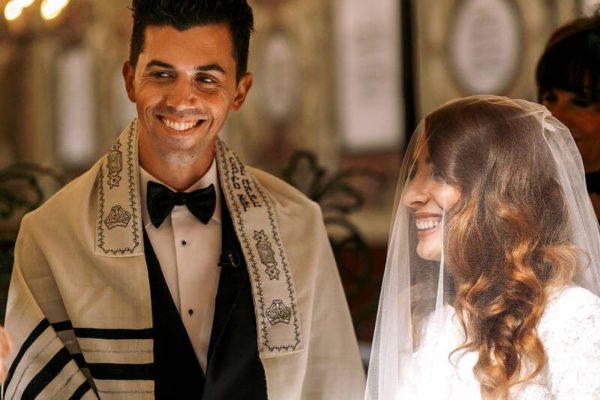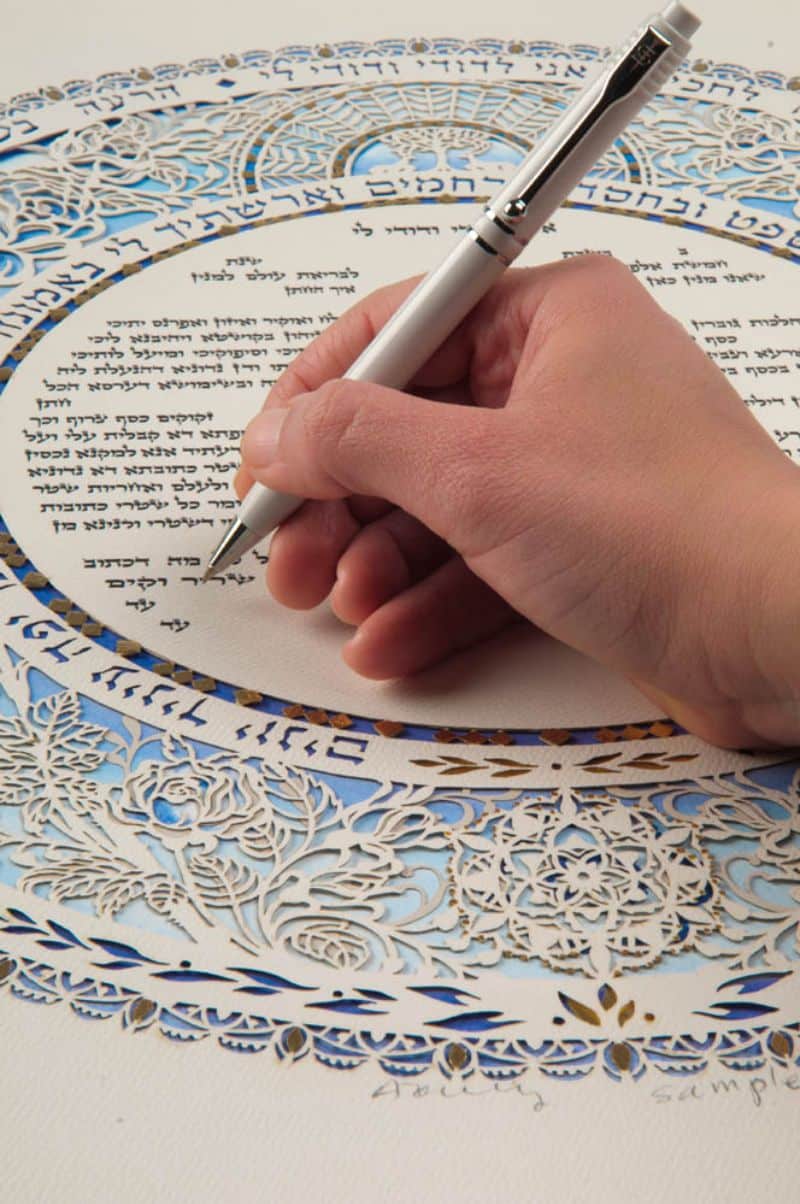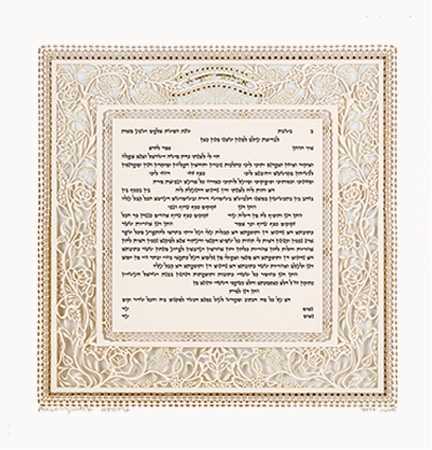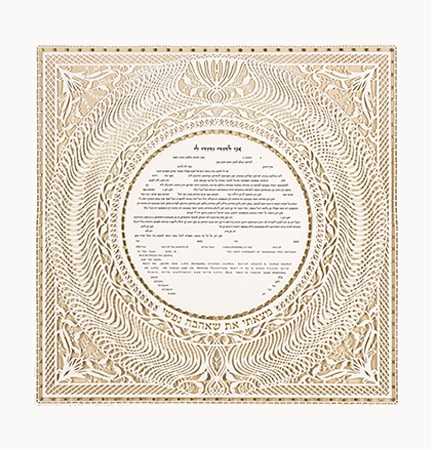The Significance of Aufruf: A Pre-Wedding Ritual Explained

The Jewish wedding ceremony is a rich tapestry of tradition and symbolism, with each element carrying profound historical meaning in Jewish culture. One such pre-wedding ritual is the Aufruf, a calling-up ceremony for the groom that takes place the morning of the wedding ceremony.
Today, we will delve into the meaning and history of the Jewish tradition of Aufruf, exploring its profound significance and associated rituals. Additionally, we will provide valuable tips for couples planning an Aufruf ceremony as part of their upcoming wedding preparations.
The Meaning of Aufruf
Aufruf means “calling up” in Yiddish. A more traditional Aufruf involves the groom exclusively, calling him to the Torah during a Shabbat service before the wedding. In Jewish tradition, this ritual marks the groom’s transition into the role of a husband within the Jewish community and serves as a public declaration of his commitment to his bride and the Jewish faith.
In modern times, the Aufruf invites both bride and groom to participate. Before the wedding ceremony begins, the Rabbi calls the couple to the Torah for a blessing, called an aliyah. The congregation joins in once the blessing is complete, wishing the couple luck while throwing soft candies. In more liberal synagogues, both partners do not necessarily have to be Jewish. Same-sex couples and interfaith couples often participate in the Aufruf if they want to include Jewish traditions.
As the Aufruf is a Jewish wedding custom as opposed to religious law, there can be many variable elements among communities. As such, it’s common to have questions about the Aufruf, as no two ceremonies are exactly the same.
Historical Roots of Aufruf: Blessing the Groom
The roots of Aufruf can be traced back to medieval Europe. Some history books claim the custom originated with King Solomon, whose reign in Israel dates to 970 BCE.
During this time, Jews faced various forms of persecution, and their communities often relied on a strong sense of unity and support. To uplift the spirit of the groom and his bride before the wedding, the community would celebrate with them by having the groom called to the Torah, offering blessings, and showering them with good wishes.
According to ancient lore, a special temple was built for grooms-to-be. When the groom passed through it, people would shower him with blessings for abundance, children, and happiness. Today, those blessings are symbolized with colorfully wrapped soft candies, creating a festive atmosphere and the look of confetti when thrown.

The Significance of the Torah Reading
One of the central elements of Aufruf is the groom’s participation in the Torah reading. He is called up to the bimah (the raised platform where the Torah is read) and recites the blessings before and after the Torah portion is read. This act symbolizes the groom’s commitment to the Jewish faith and his readiness to take on the responsibilities of marriage.
Aufruf Blessings and Celebrations
The Aufruf often takes place the morning of the wedding, before the marriage ceremony. However, some couples may plan the Aufruf several weeks before. In Sephardic custom, the Aufruf will occur a week after the wedding. Regardless of when it happens in relation to the wedding itself, Aufruf always takes place on a Saturday.
Because the ceremony is traditionally for the groom only, the groom’s parents are responsible for organizing the Aufruf. Following the Torah reading, it is customary for the congregation to offer blessings and good wishes to the engaged couple. This is a joyful moment where the community comes together to support the newly-wedded couple as they embark on their journey into marriage. After the service, friends and family often host a festive Kiddush, a ceremonial or celebratory light meal.

Tips for Couples Planning an Aufruf Ceremony
For couples planning an Aufruf ceremony as part of their wedding preparations, here are some essential tips to consider.
1. Coordinate with Your Synagogue
There is no obligation to have the Aufruf in a synagogue. If you want the Aufruf to take place in the synagogue, be sure to contact the place of worship well in advance to schedule the ceremony. Ensure you understand the synagogue’s specific customs and requirements before you start planning. If one partner isn’t Jewish, for example, they may or may not want to participate. Though the ceremony is technically open to interpretation, knowing if the synagogue will accommodate your preferences is essential.
2. Choose Meaningful Aliyah Portions
Work with your rabbi to select meaningful Torah portions for your Aufruf. These selections may relate to love, marriage, or other themes significant to your relationship. Like a ketubah, the Aufruf can be tailored to suit the couple’s personality and style.
3. Involve Your Family and Friends
Encourage family and close friends to attend the Aufruf ceremony. Though the Aufruf may take place directly before the wedding ceremony, there is no obligation for the entire wedding party to be present. The couple and their family may choose to invite only close family and friends, or the whole congregation could participate. Their presence and blessings will only add to the joyous atmosphere.
4. Personalize the Experience
The couple should consider personalizing the ceremony by sharing a brief speech or reflection on their relationship and the significance of the Aufruf. This can make the experience even more meaningful and memorable for all in attendance.
5. Plan a Celebration
After the service, coordinate a celebratory meal or gathering (Kiddush) to continue the joyous occasion with loved ones. A Jewish marriage is cause for much celebration and joy, and sharing food brings everyone together around people they love.
Final Thoughts
In conclusion, Aufruf is a beautiful and meaningful tradition within the Jewish wedding journey. It serves as a public declaration of the groom’s commitment to his bride and the Jewish faith while fostering community support and celebration. For couples planning their wedding, the Aufruf ceremony offers an opportunity to connect with tradition, share their joy with loved ones, and embark on their new chapter with blessings from their community.
















